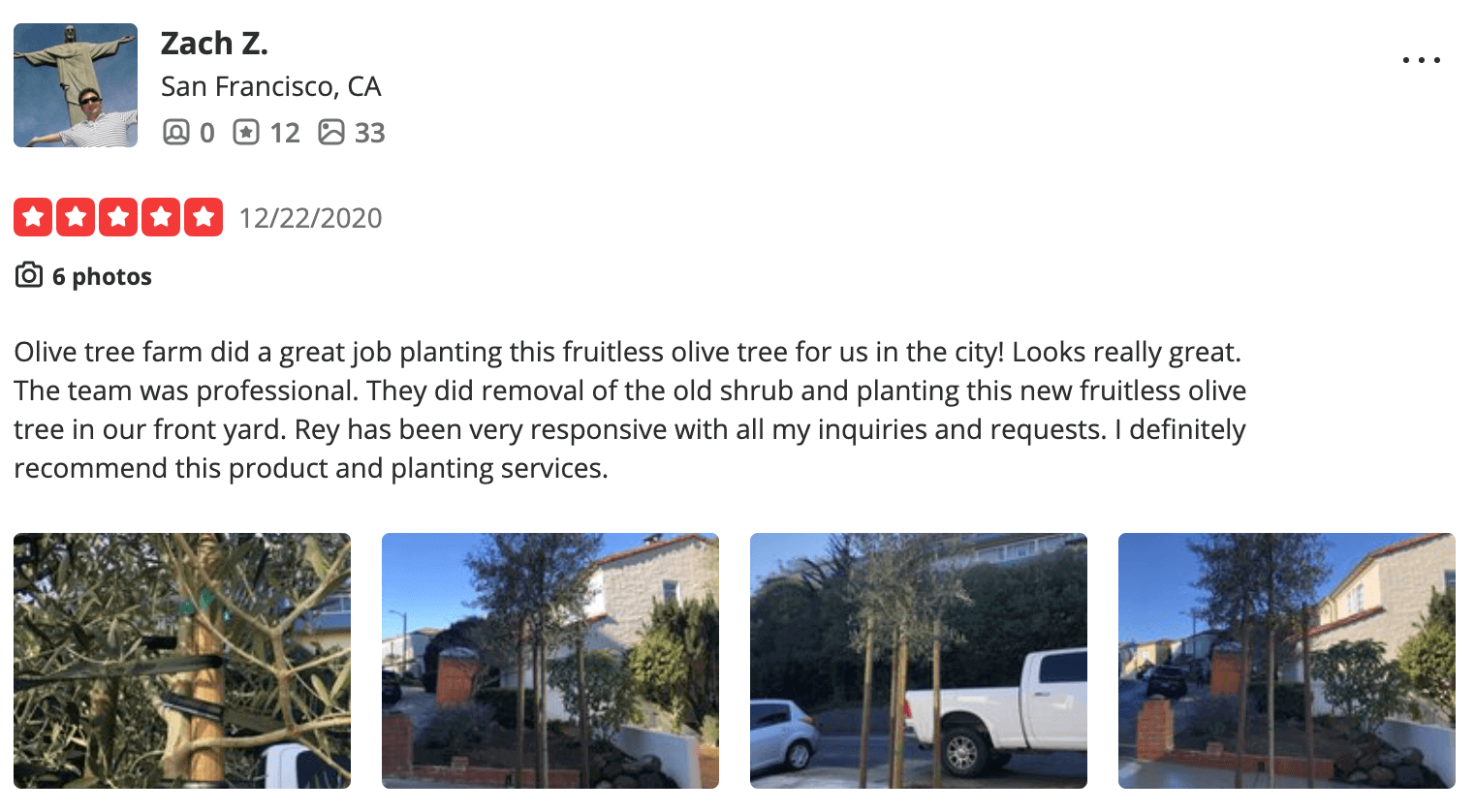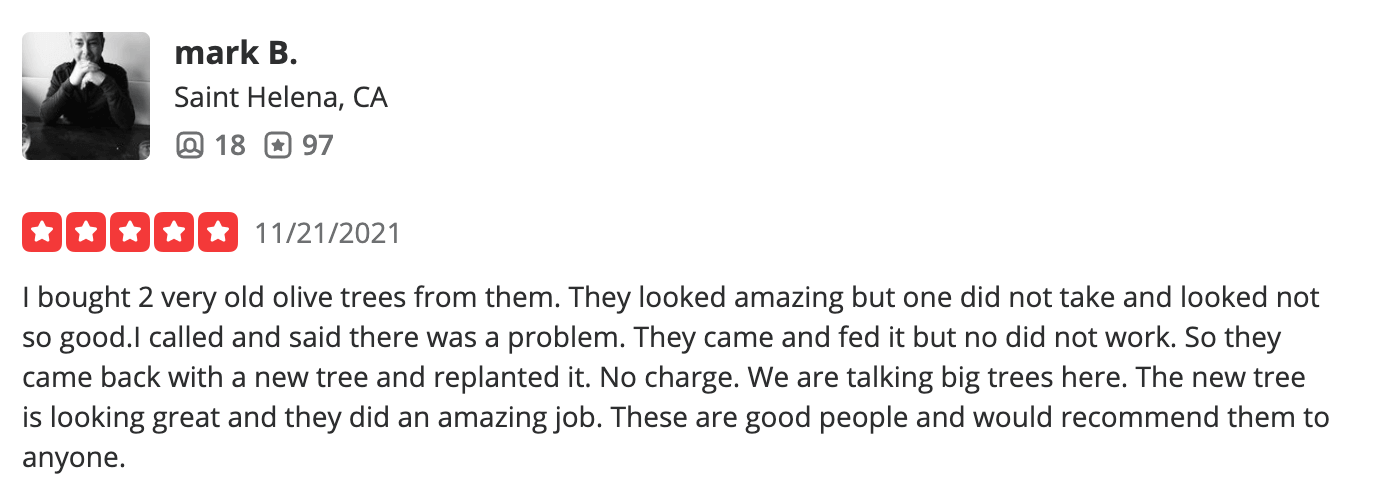Ascolana Tenera Olive Trees
Ascolana Tenera olive trees are native to the province of Ascoli Piceno, located in the southern part of the Marche region on the central Adriatic coast of Italy—they are known for their dark green leaves and vigorous growth within a dense canopy. Even though Ascolana Tenera is primarily self-fertile, it is suggested to cultivate them in conjunction with Leccino, Pendolino, or Frantoio cultivars to maximize fruit yield. However, it is preferable to keep them under 20 ft.
Initially, the leaves are dark green but might brighten slightly in the warmer months. Fruit is light green when harvested and does not turn black when fully mature; however, it is vulnerable to bruising when handled roughly. When mature, the flesh of the enormous olives is delicate and sweet, reminiscent of tropical fruits. It is also used to produce an Italian appetizer, olive all’ascolana, which consists of pitting olives, stuffing them with seasoned meat, and frying them in batter.
- Fruiting Specimen
- Bloom (Spring)
- Vigorous Growth
- Color (Dark Green)
- Olive Oil (Sweet)
- Commercial Use
Care and Maintenance
Ascolana Tenera olive trees are exceedingly versatile and thrive in ordinary, slightly alkaline, well-drained soils. However, fruit yield maximizes when planted close to other varieties, such as Leccino, Frantoio, or Pendolino. Water deeply and frequently during the first few growing seasons to help the plant build a strong root system. Once established, reduce the frequency of watering; it is drought-tolerant. However, protect young plants from extreme winter weather.
| Quick Facts | |
| Origin | Ascoli Piceno, Italy |
| Scientific Name | Olea Europaea ‘ Ascolana’ |
| Family | Oleaceae |
| Tree Type | Fruiting Specimen |
| Common Names | The Olive Tree, Ascolana olive tree, Olea Europaea |
| Height | (Insert) |
| Toxicity | Non Toxic |
| Light | Full Sun |
| Watering | Drought-Tolerant |
| Soil | Well-Drained-Nutrient Poor Soil |
| Hardiness | Hardy Down 10 °F |
| Foliage | Dark Green |
| Growth | Vigorous |
| Olive Oil | Sweet |
Don’t Take Our Word, Hear What Our Customers Say!



Interested? We’d love to hear from you!
Call us at 707-732-6152 for a free consultation!
Looking for something else? We might have it for you...
Arbequina Olive Trees
Arbosana Olive Trees
Ascolana Tenera Olive Trees
Cerignola Olive Trees
Coratina Olive Trees
Itrana Olive Trees Kalamata Olive Trees
Koroneiki Olive Trees
Leccino Olive Trees
Little Ollie Dwarf Olive Trees
Majestic Beauty Olive Trees
Manzanillo Olive Tree
Maurino Olive Tree Mission Olive Tree
Pendolino Olive Trees
Picholine Du Gard Olive Trees
Picual Olive Trees
Sevillano Olive Trees
Swan Hill Olive Trees
Wilsonii Olive Trees
Zitoun Olive Trees